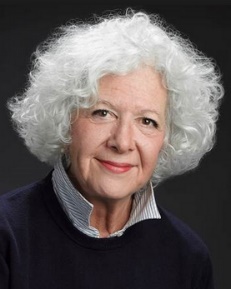New Directions for Naparstek’s pioneering mind-body business “Health Journeys”
December 5, 2017
 by John Weeks, Publisher/Editor of The Integrator Blog News and Reports Editor’s note: This analysis article is not edited and the authors are solely responsible for the content. The views and opinions expressed in this article are those of the authors and do not necessarily reflect the official policy or position of Integrative Practitioner. In first light of integrative treatment in the early-1990s, rumors emerged that the gigantic health-plan Kaiser Permanente was offering mind-body cassettes to its HMO members. Not long after, a published paper from Cleveland Clinic reported cost savings from those using such tools to heal from surgeries. This provoked Blue Cross Blue Shield of California to routinely ship these low-cost tapes to prepare for surgery. In each case, these industry giants used products first developed by psychologist Belleruth Naparstek for her own patients in the early 1980s. She shares that interest in the then as her Health Journeys business she then founded is now so strong in this era of rethinking chronic pain that “it’s a weird sensation to not have to make a case” for the value of these tools. Naparstek, now 75-years-old, shares that her early transition from tape cassettes to CDs is now seeing an additional shift to pure download. While sales to practitioners and individuals remain roughly a 50-50 mix of CDs and downloads, Health Journeys’ corporate clients are moving toward “private label” download sites. “Blue Cross Blue Shield told us they have rooms full of the CDs – people don’t want them anymore,” she explains. “They want downloads.”
by John Weeks, Publisher/Editor of The Integrator Blog News and Reports Editor’s note: This analysis article is not edited and the authors are solely responsible for the content. The views and opinions expressed in this article are those of the authors and do not necessarily reflect the official policy or position of Integrative Practitioner. In first light of integrative treatment in the early-1990s, rumors emerged that the gigantic health-plan Kaiser Permanente was offering mind-body cassettes to its HMO members. Not long after, a published paper from Cleveland Clinic reported cost savings from those using such tools to heal from surgeries. This provoked Blue Cross Blue Shield of California to routinely ship these low-cost tapes to prepare for surgery. In each case, these industry giants used products first developed by psychologist Belleruth Naparstek for her own patients in the early 1980s. She shares that interest in the then as her Health Journeys business she then founded is now so strong in this era of rethinking chronic pain that “it’s a weird sensation to not have to make a case” for the value of these tools. Naparstek, now 75-years-old, shares that her early transition from tape cassettes to CDs is now seeing an additional shift to pure download. While sales to practitioners and individuals remain roughly a 50-50 mix of CDs and downloads, Health Journeys’ corporate clients are moving toward “private label” download sites. “Blue Cross Blue Shield told us they have rooms full of the CDs – people don’t want them anymore,” she explains. “They want downloads.”  She’s revamped her staff to a younger set of employees and consultants, under the guidance of COO Jonathan Goldsmith, who are more in tune with the present teched-up era. Goldsmith shared this brief data-history for the firm: “Health Journeys started back in ’91 with tapes (1.3 million sold since) moved to CDs around ’00 (2.1 million sold) and to digital downloads in 2006 (2.7-million downloads).” Goldsmith: “And we move on to streaming.” The later technologies, says Naparstek, are “an inexpensive way for an institution or department to choose the right menu for their patients, and allow their providers to ‘prescribe’ the mind-body interventions a patient needs, for say, pain relief or cancer treatment or surgery or depression/anxiety or wellness.” She continues: “The provider gives the patient a passcode and sends them to the page for free access to the content.” She laughs: “One day now it will be the end for downloads. It’ll soon all be streaming.” Health Journeys’ ongoing work with Kaiser – involving 21 separate clinical programs – is available across multiple Kaiser stakeholder populations. She shares that the nationwide leader in health maintenance was originally skeptical of the high rate of usages. “Typically 70% to 74% of patients offered the tools pre-surgery use them.” Health Journeys’ had to share their data to convince Kaiser that these surprisingly high levels of uptake were true.
She’s revamped her staff to a younger set of employees and consultants, under the guidance of COO Jonathan Goldsmith, who are more in tune with the present teched-up era. Goldsmith shared this brief data-history for the firm: “Health Journeys started back in ’91 with tapes (1.3 million sold since) moved to CDs around ’00 (2.1 million sold) and to digital downloads in 2006 (2.7-million downloads).” Goldsmith: “And we move on to streaming.” The later technologies, says Naparstek, are “an inexpensive way for an institution or department to choose the right menu for their patients, and allow their providers to ‘prescribe’ the mind-body interventions a patient needs, for say, pain relief or cancer treatment or surgery or depression/anxiety or wellness.” She continues: “The provider gives the patient a passcode and sends them to the page for free access to the content.” She laughs: “One day now it will be the end for downloads. It’ll soon all be streaming.” Health Journeys’ ongoing work with Kaiser – involving 21 separate clinical programs – is available across multiple Kaiser stakeholder populations. She shares that the nationwide leader in health maintenance was originally skeptical of the high rate of usages. “Typically 70% to 74% of patients offered the tools pre-surgery use them.” Health Journeys’ had to share their data to convince Kaiser that these surprisingly high levels of uptake were true.  Naparstek’s role as faculty at the U of Arizona Center for Integrative Medicine led to a connection with a professional who then linked her to the California Community College system. “Their students are facing awful stress often holding down 2-3 other jobs while in school.” They developed a pilot involving a set of 8 of Health Journeys’ mind-body tools. These focus on areas such as stress, anxiety, depression and colds/flues that are problematic in this population. Despite limited advertising of the program, the students in the pilot “quickly blew through the allotted 1200 downloads within a month.” Naparstek anticipates a research paper will emerge. Discussions are now under way with multiple individual academic institutions to set up their own download pages. Partnerships have commenced with the University of Alabama, and another with a women’s health initiative at U Pennsylvania. Interest is percolating on other fronts. The University Hospitals Healthcare System of Cleveland has engaged a partnership with Health Journeys that first will target not patients, but instead the stress, burnout and depression in their physicians. A next phase there might expand to other practitioners and staff with a third phase reaching out to patients.
Naparstek’s role as faculty at the U of Arizona Center for Integrative Medicine led to a connection with a professional who then linked her to the California Community College system. “Their students are facing awful stress often holding down 2-3 other jobs while in school.” They developed a pilot involving a set of 8 of Health Journeys’ mind-body tools. These focus on areas such as stress, anxiety, depression and colds/flues that are problematic in this population. Despite limited advertising of the program, the students in the pilot “quickly blew through the allotted 1200 downloads within a month.” Naparstek anticipates a research paper will emerge. Discussions are now under way with multiple individual academic institutions to set up their own download pages. Partnerships have commenced with the University of Alabama, and another with a women’s health initiative at U Pennsylvania. Interest is percolating on other fronts. The University Hospitals Healthcare System of Cleveland has engaged a partnership with Health Journeys that first will target not patients, but instead the stress, burnout and depression in their physicians. A next phase there might expand to other practitioners and staff with a third phase reaching out to patients.  The US’s attempt to reframe its relationship to chronic pain through less reliance on opioids and other pharmaceuticals is a factor in the new openness. The state of Ohio, where Health Journeys is based, “has mandated that hospitals have alternatives to drugs in place for patients to opt for by Jan 1, 2018.” Health Journeys was approached by a large system to partner in a state-wide competition to show effective means for lowering opioid use. “We were planning to get involved already – being approached meant we could do this must better, in a partnership,” Naparstek shares. In addition, through work with the Veterans Administration’s integrative health leader Benjamin Kligler, MD, MPH, the VA will commence a January 2018 pilot. Health Journeys is “building a product” for the VA that will focus on treatment of PTSD, stress anxiety, “and the other big one, pain.” Naparstek reflected on the early days of her first mindfulness cassettes. She remembered the role of a key relationship in getting Health Journeys going. She didn’t have the data now available or research from multiple trials. “When I gave [a cassette] to my patients I would say ‘well, this might give you a boost.’ That wasn’t enough for the medical institutions.” Then she laughed: “Nobody probably would have ever listened to me if I hadn’t been married to a Dean.” Comment: Naparstek’s early work recalled a time in which linking “mindbody” and “business” in one breath was to leap into the deep end of an oxymoronic pool. To affix the one word to the other seemed a violation of each. While the Health Journeys’ founder has always been a deft promoter who would move into new territory despite the odds, it remains remarkable to hear her share her “weird sensation to not have to make a case” for the value of mind-body tools.
The US’s attempt to reframe its relationship to chronic pain through less reliance on opioids and other pharmaceuticals is a factor in the new openness. The state of Ohio, where Health Journeys is based, “has mandated that hospitals have alternatives to drugs in place for patients to opt for by Jan 1, 2018.” Health Journeys was approached by a large system to partner in a state-wide competition to show effective means for lowering opioid use. “We were planning to get involved already – being approached meant we could do this must better, in a partnership,” Naparstek shares. In addition, through work with the Veterans Administration’s integrative health leader Benjamin Kligler, MD, MPH, the VA will commence a January 2018 pilot. Health Journeys is “building a product” for the VA that will focus on treatment of PTSD, stress anxiety, “and the other big one, pain.” Naparstek reflected on the early days of her first mindfulness cassettes. She remembered the role of a key relationship in getting Health Journeys going. She didn’t have the data now available or research from multiple trials. “When I gave [a cassette] to my patients I would say ‘well, this might give you a boost.’ That wasn’t enough for the medical institutions.” Then she laughed: “Nobody probably would have ever listened to me if I hadn’t been married to a Dean.” Comment: Naparstek’s early work recalled a time in which linking “mindbody” and “business” in one breath was to leap into the deep end of an oxymoronic pool. To affix the one word to the other seemed a violation of each. While the Health Journeys’ founder has always been a deft promoter who would move into new territory despite the odds, it remains remarkable to hear her share her “weird sensation to not have to make a case” for the value of mind-body tools.



















SHARE